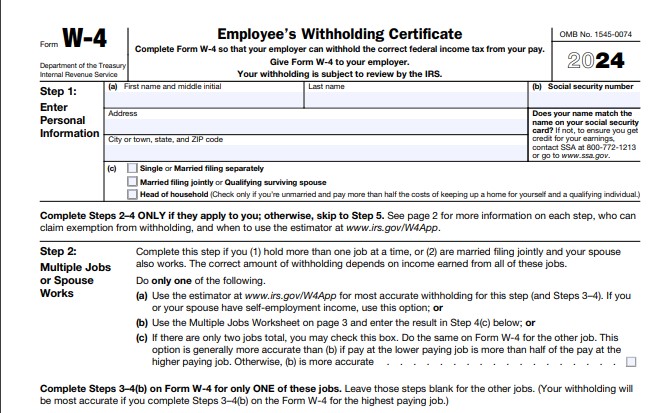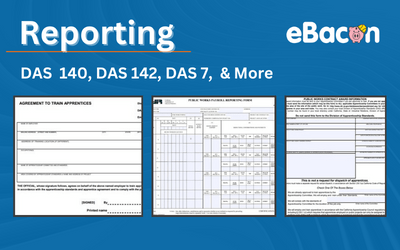Welcome to the Institute of eBaconology, your premier online hub for mastering the intricacies of Davis Bacon Act compliance. Dive into our helpful advice covering Davis Bacon, Certified Payroll, Fringe Benefits, Prevailing Wage, Tax Information, and Wage Determinations. Unlock the secrets to seamless adherence with expert tips and guidelines, ensuring your construction firm excels in managing payroll for federal projects.
Personal Protective Equipment Standards: What You Need to Know About OSHA’s Smart New Guidelines
Working in construction can be demanding. Juggling intricate tasks while wearing bulky Personal Protective Equipment (PPE) can feel frustrating and hinder your work. This can
Communication is Key: What You Need to Know NOW About HR Strategies and Prevailing Wage
Clear and consistent communication is the bedrock of any successful construction project. But on prevailing wage projects, where strict government regulations come into play, effective
Construction Workforce Shortages: How to Attract and Retain the Best Workers
Contractors, it’s time to acknowledge a tough reality: construction workforce shortages have been an enduring issue on job sites for quite some time. Despite the
FTC Non-Compete Clause Rule Changes for Construction Payroll: Everything You Need to Know Now
In the world of construction, where projects are dynamic and workforce needs fluctuate, the recent announcement from the Federal Trade Commission (FTC) regarding the banning
Independent Contractors: What You Need to Know to Protect Your Construction Business Right Now
Using independent contractors on your construction projects can seem like a win-win. They bring specialized skills and flexibility, often working on specific projects with specific
Staff Up Now! HR Strategies for Clean Energy Construction
Construction worker shortage drama? It’s the same obstacle recognized by many labor industries throughout the country: There’s plenty of work available, but there aren’t enough
Independent Contractors: What You Need to Know to Protect Your Construction Business Right Now
Using independent contractors on your construction projects can seem like a win-win. They bring specialized skills and flexibility, often working on specific projects with specific
Certified Payroll Made Easy: 5 Reasons Why You Need Digital Tools for Clean Energy Builders
While the Inflation Reduction Act (IRA) of 2022 offered tax incentives for clean energy construction companies, it also introduced new requirements that necessitated the use
The Best March Action Plan for Contractor Construction Reporting
When you think of a busy to-do list for construction reporting, you might immediately envision year-end. But March is no slouch either. There are several
Start-to-Finish Best Practices: How to Navigate Prevailing Wage
Many contractors find themselves intimidated by the complexities of prevailing wage projects. If you’ve never performed one of these projects that are subject to Davis-Bacon
How to Fill Out Your W-4 Form for 2024
W-4 Form. It may sound like a boring piece of paperwork, but it can have a big impact on your finances. A W-4 form tells
Davis-Bacon Compliance Made Easy: A Step-by-Step Guide for 2024
While navigating through the intricacies of Davis-Bacon compliance, contractors must grasp key principles outlined by the U.S. Department of Labor (DOL) for the Davis-Bacon and
Certified Payroll Made Easy: 5 Reasons Why You Need Digital Tools for Clean Energy Builders
While the Inflation Reduction Act (IRA) of 2022 offered tax incentives for clean energy construction companies, it also introduced new requirements that necessitated the use
Prevailing Wages for Clean Energy and Solar Construction: What You Need to Know
The world of solar construction is seeing a shift as many companies are now subject to prevailing wage regulations and certified payroll reporting within the
Tax Forms Made Easy: A Step-by-Step Guide for Construction Businesses
During January, tax forms are sent to American employees and they begin the arduous task of reporting income to the Internal Revenue Service (IRS). Most
How to Save Money and Time by Choosing the Right Payroll Service for Construction in the New Year
As the year comes to an end, you might be looking for a way to streamline your construction payroll service. There are many options out
5 Powerful Benefits of Certified Payroll Reporting Software That You Need to Know
Numerous payroll processing options exist in the market, making it challenging to discern utility amid the various features. In the construction industry, companies can gain
What You Need to Know to Complete DAS 140 and 142 Forms for Public Works Projects
California often marches to the beat of its own drum. This is particularly evident in the construction industry, especially in prevailing wage jobs. For example,
What You Need to Know About How to Comply with Apprentice to Journeyman Ratios
When delving into the intricacies of apprentice-to-journeyman ratios, understanding the nuances of wage determination is vital before crews embark on federally funded construction projects. Before
Fringe Benefits 101: What You Need to Know
Fringe benefits take on a new meaning for prevailing wage construction companies due to the requirements created by Davis-Bacon and Related Acts(DBRA) and McNamara-O’Hara Service
Cash vs. Value: Choosing the Right Approach for Fringe Benefits
Construction companies that pay fringe benefits in cash are giving up tens of thousands of dollars every year, maybe more. While Davis-Bacon and Related Acts
Fringe Trust Options: Choosing the Best Strategy Right Now
Have you heard of a fringe trust and wondered what they were, how they work, and if they are a good way to manage fringe
What You Need to Know About Paying Cash Fringe Benefits
Government contracts can be a great source of income for construction companies, but they are often more complicated than private projects. The rules and regulations
ALERT: Why You Need a Construction Supplemental Unemployment Benefit Plan Now
Supplemental Unemployment Benefit (SUB) plans can provide a vital financial safety net for construction workers facing layoffs due to the industry’s seasonal nature. This blog
Communication is Key: What You Need to Know NOW About HR Strategies and Prevailing Wage
Clear and consistent communication is the bedrock of any successful construction project. But on prevailing wage projects, where strict government regulations come into play, effective
Independent Contractors: What You Need to Know to Protect Your Construction Business Right Now
Using independent contractors on your construction projects can seem like a win-win. They bring specialized skills and flexibility, often working on specific projects with specific
Prevailing Wages for Clean Energy and Solar Construction: What You Need to Know
The world of solar construction is seeing a shift as many companies are now subject to prevailing wage regulations and certified payroll reporting within the
AB 2143 for California Solar Contractors: What You Need to Know NOW About Prevailing Wages
California Leads the Charge in Renewable Energy with this Assembly Bill California is a national leader in solar energy, and Assembly Bill 2143 known as
The Best March Action Plan for Contractor Construction Reporting
When you think of a busy to-do list for construction reporting, you might immediately envision year-end. But March is no slouch either. There are several
Start-to-Finish Best Practices: How to Navigate Prevailing Wage
Many contractors find themselves intimidated by the complexities of prevailing wage projects. If you’ve never performed one of these projects that are subject to Davis-Bacon
FUTA and SUTA Compliance Made Easy: A Construction Payroll Guide
Stay compliant, stay competitive: Mastering construction business taxes is crucial, but navigating unemployment taxes can feel like a whole new ballgame. But fear not! This
How to Fill Out Your W-4 Form for 2024
W-4 Form. It may sound like a boring piece of paperwork, but it can have a big impact on your finances. A W-4 form tells
All You Need to Know on How to Simplify W2 Form Delivery and Filing for Your Employees
When January rolls around, it’s inevitable that payroll administrators nationwide begin fielding calls with the same tax question: “When will I get my W-2 Form?”
What You Need to Know About Processing 1099 Employees for Certified Payroll
You may assume that 1099 employees – often known as independent contractors or self-employed workers – are the answer to all of your payroll problems.
Employee Retention Tax Credit Changes: What You Need to Know Now
Delays and Backlogs in ERTC Processing In a pivotal tax credit letter dated October 3, 2023, the House of Representatives Ways and Means Committee addressed
ERC Tax Credit: What Does the New IRS Update Mean?
The ERC has been a controversial program. The IRS warns about fraud caused by aggressive advertising from "ERC Mills" and promoters encouraging people to wrongly
What You Need to Know About How to Comply with Apprentice to Journeyman Ratios
When delving into the intricacies of apprentice-to-journeyman ratios, understanding the nuances of wage determination is vital before crews embark on federally funded construction projects. Before
Proven Strategies: How to Excel with Government Wage Determinations Now
Every government contractor that works on prevailing wage projects deals with wage determinations. While the idea of a wage determination seems simple, there’s a bit
The Hidden Secrets of Wage Determinations (Contractors Must Know!)
Facts about wage determinations that every construction company that does certified payroll needs to know.







































